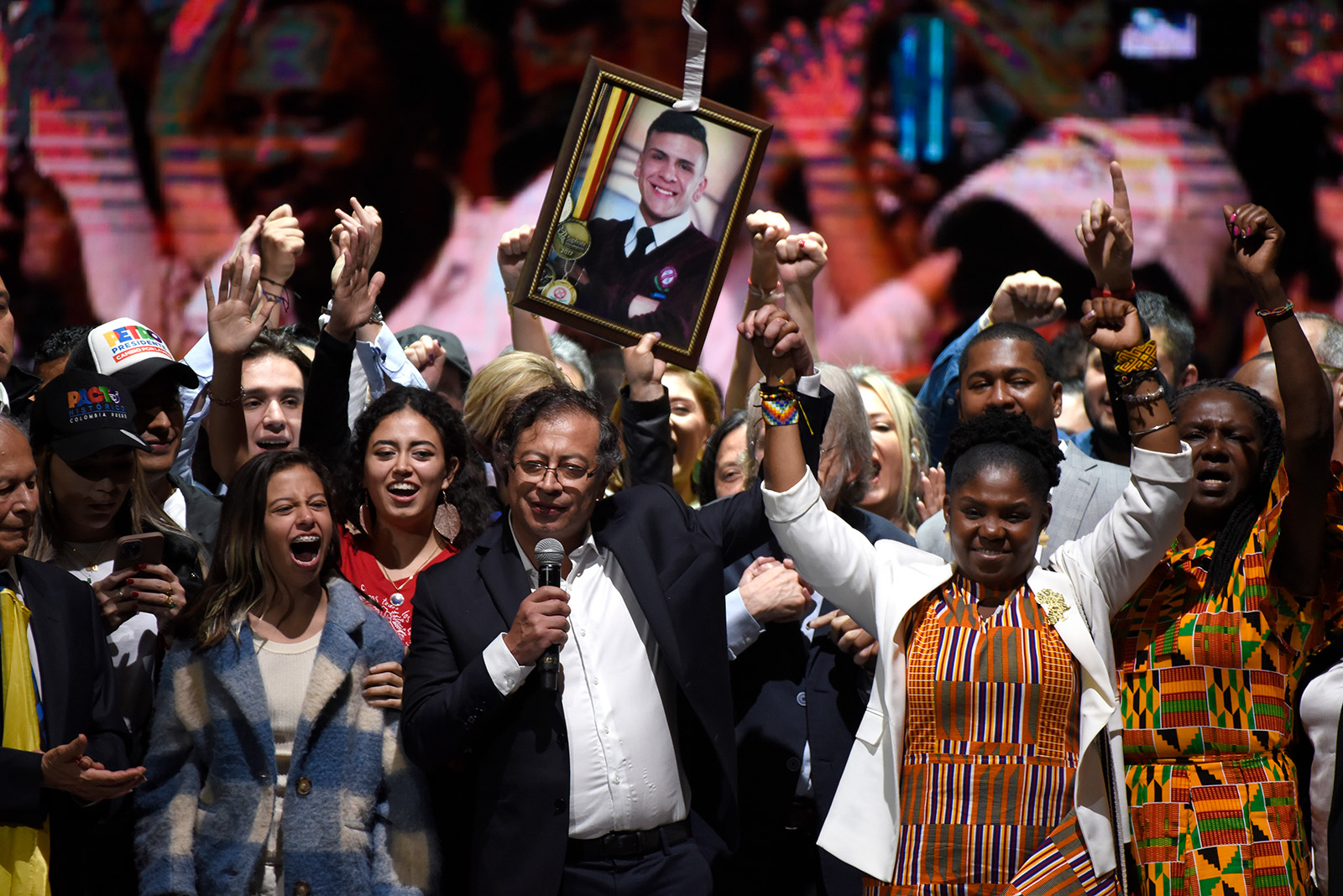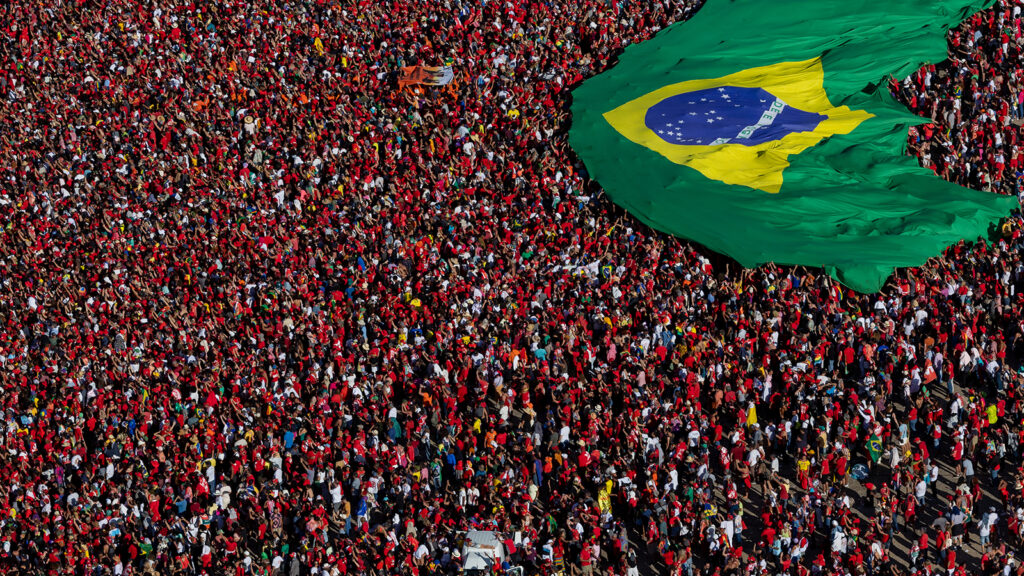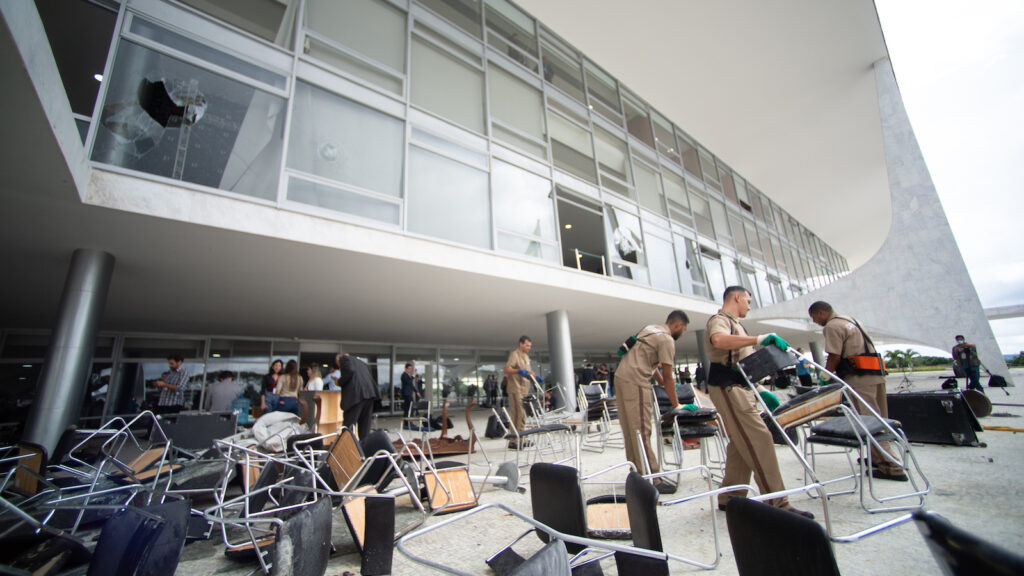
Newly elected President of Colombia Gustavo Petro and Vice-President Francia Marquez of Pacto Historico coalition celebrate after winning the presidential runoff on June 19, 2022 in Bogota, Colombia. Petro is the first leftist president, and Marquez is the first Afro-Colombian vice president, in Colombia's history.
Photo: Guillermo Legaria/Getty Images
Gustavo Petro’s recent presidential election raises both hope and unease as the left takes power in Colombia for the first time in history. He promises a radical transformation of Colombia’s economic model, but the question is whether he can deliver.
The Altamar team of Peter Schechter and Muni Jensen spoke this week to Miguel Silva, former chief of staff to the president of Colombia. This is the first time that the left will rule in this democracy of 50 million historically conservative people, who have now expressed a deep desire for change. Gustavo Petro, a controversial former guerrilla, congressman and mayor, beat a rich and eccentric populist who ran from the right.
Colombia has strong institutions, and Petro still needs to engage not only with his voters but with Congress, a thriving press, a judicial system, and opposition parties. Will Petro move to the center? Along with the first leftist president, Colombia elected its first Afro-Colombian vice president.
So will Petro be able to get his agenda passed? Silva responded, “It’s going to be hard for Petro for many reasons. One of them is the big economic restrictions that the current situation of Colombia involves. Also, he will govern with a coalition [in Congress], and that means that when he moves mainstream and to a more moderate position, his partners at the extreme left are going to be angry. And if he moves to the extreme left, his capability of governing is going to diminish.”
Stuck between a rock and a moderately hard place, Petro will have trouble appealing to both moderates and extremists. For Silva, Petro’s main challenge is going to be “converting populism, which is a way of doing campaigns, into real policy and policy that will not scare everyone out of the country. I think that he has given a message of moderation. My bet is that he’s going to be a moderate president as long as he can. And then, I think sooner, rather than later, he’s going to be a more radical president because he is pretty radical himself.”
A Radical Past With Populist Beliefs
Can he get many of those extreme beliefs through government? Silva said, “I think that the way to see this is some of these campaign promises are only campaign promises. [For example,] he will not stop oil production or exploration. … He already said that … nothing will happen in the short term. … But I think the real proof comes when he moves into the pension funds and the tax reform, because those two have big red lines for members of his coalition.”
So far, Silva has seen more support from Congress than initially expected. In tax reform and pension reform, the Colombian congress plays a very important role. Will there actually be checks and balances? Silva responded, “Would Congress and such a fragmented opposition be able to stop the president when he does crazy things? And I think my answer is no. I don’t think Congress will be the obstacle. I think that the big check and balance is going to be the people, and it’s going to be the constitutional court.”
What About Corruption?
Petro is deeply controversial. He does not come to power with a pure reputation or non-corrupt associates. But his campaign condemned corruption. What does our guest think Petro’s administration will do with that? Silva explained, “Today’s Petro sounds so different from yesterday’s Petro: He’s now moderate, he’s a statesman. I see someone who wants to go into history as a statesman, as someone who brought social democracy into Colombia, not someone who brought old, unsuccessful Chavismo to Colombia. So, I’m hopeful that he might be someone [tough on] corruption.”
There’s huge anger in Colombia. You have 22 million Colombians out of 55 in poverty, and 6 million of them live with less than a dollar a day.
Our guest was even more optimistic when it came to Petro’s running mate — Francia Marquez. Silva described her as “a social leader. She comes from a very humble origin. She was never in the guerrillas. So, she’s entirely anti-corruption in her essence and nature. So, I think that the dynamics between those two, and between the different fragments of our left are going to be an interesting force against corruption.”
Colombia has made a lot of gains in past decades in infrastructure, education and health. However, poverty and inequality remain massive issues in the country. Silva explained, “We handled COVID-19 — we did this huge dramatic lockdown, which might have helped to save some lives, but it sent 4 million Colombians back to poverty. So, there’s huge anger in Colombia. You have 22 million Colombians out of 55 in poverty, and 6 million of them live with less than a dollar a day. And the other 18 million live with less than $90 a month. That is a horrifying number.”
Impact on Relations With US Will Be Dramatic
In a country historically governed by the right and center-right, what happened? Silva offered an explanation, “The center in my country committed suicide. And the center needs, particularly the center left, to go back to the drawing board and understand why their message is not going through. And it’s not only because of social media. Of course, that’s one of the reasons. But the other reason is they don’t look courageous enough and Petro and Hernández did look courageous.”
A dramatic regime shift is likely to affect Colombia’s relationships with its allies. Despite strong ties to the United States, Petro is more naturally aligned with Cuba, Venezuela and even Russia. Silva commented on the relationship with the United States, “In the absence of a strategy from the United States towards Latin America, our relationships are managed by the agencies. And so poor Colombia is managed by its relationship with the DEA and that’s it. So, it’s all about drugs. That has to change. It should change. We have an old relationship. We have an old friendship. It should be a richer conversation, not such a psychotic conversation about drugs.”




